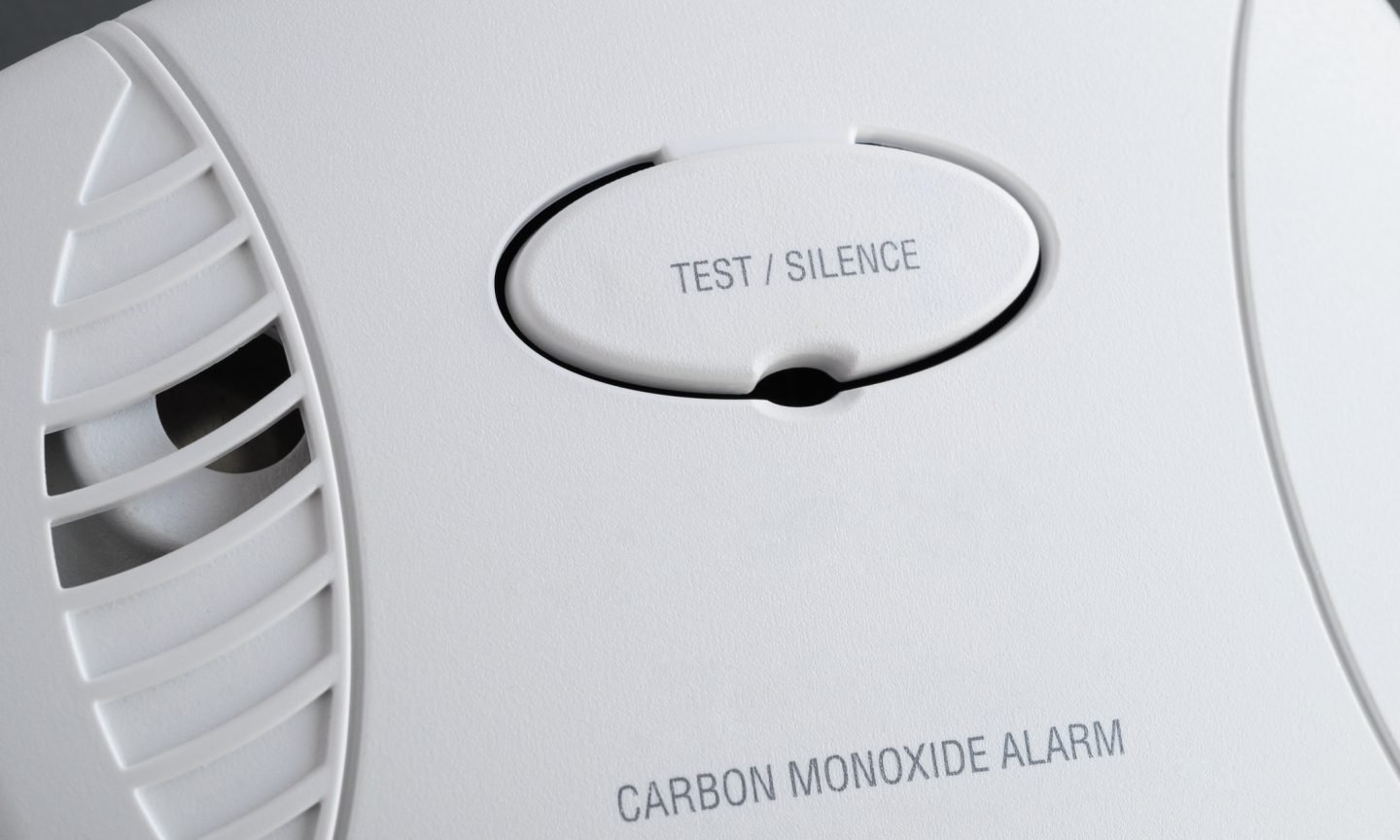If your carbon monoxide alarm is going off continuously with four short beeps at a time, assume it’s detecting carbon monoxide. Do not ignore the alarm. All people and animals should leave the area and find fresh air. Call 911 to report that the carbon monoxide alarm is going off. It’s better to be safe than sorry, especially since CO isn’t visible like smoke is.
How does a carbon monoxide detector work?
Carbon monoxide detectors alert you if they detect carbon monoxide (CO), which is a colorless, odorless gas produced by fuel-burning devices. The detectors typically look like smoke alarms and emit a high-pitched siren alarm when they sense the gas. Carbon monoxide can be deadly when inhaled.
🤓Nerdy Tip
Some home security systems come with carbon monoxide and/or smoke alarm listeners that connect to a smart home app and send you phone notifications if your detector goes off.
What to do if your carbon monoxide alarm keeps going off
1. Check for symptoms of carbon monoxide poisoning
If your CO alarm is continuously going off with a high-pitched sound or making four short beeps at a time with a few seconds in between, that means it’s detecting carbon monoxide in the air and it’s an emergency alert. Check for symptoms of carbon monoxide poisoning.
The symptoms of carbon monoxide exposure appear like flu symptoms: headaches, nausea, dizziness, difficulty breathing, chest pain, confusion and vomiting. If you hear the emergency alert and if anyone in your household is experiencing these symptoms, leave your home immediately and call 911. If you have pets, take them with you, as animals can also experience CO poisoning.
2. Change the batteries
Carbon monoxide detectors often chirp or beep once every minute when the device’s batteries need to be replaced. Your alarm may also have LED lights that indicate the battery level.
3. Reset the device
If you’re sure your detector is setting off a false alarm and you want to turn the beeping off, you can reset the device by holding down a “reset” or “silence” button for 10 seconds (the button label and hold time might vary by manufacturer). A light on the device should blink or the device should beep when it’s been reset. If you have a smart alarm, you may be able to reset the device with your phone.
4. Replace the device
Depending on the manufacturer, carbon monoxide detectors may beep every 30 seconds or a few times a minute when they need to be replaced completely or are malfunctioning. Carbon monoxide detectors have a lifespan of about five to seven years.
Depending on the manufacturer, the device might also display an “ERR” or “END” message if it’s near the end of its life. Replacing the batteries will not fix the beeping.
5. Move the detector
Fireplaces and gas stoves can produce small amounts of carbon monoxide that can set off a detector. It may make sense to move your device away from these heat sources.
6. Clean your detector
Dust buildup can block your detector’s sensors and make the alarm go off. Find your detector manufacturer’s instructions for cleaning your alarm. Some manufacturers recommend cleaning the detector regularly with a cloth or canister of compressed air for electronics but not water or liquid cleaners, for example.
What is carbon monoxide, and where does it come from?
Where should I install a carbon monoxide detector?
Do I need a carbon monoxide detector?

